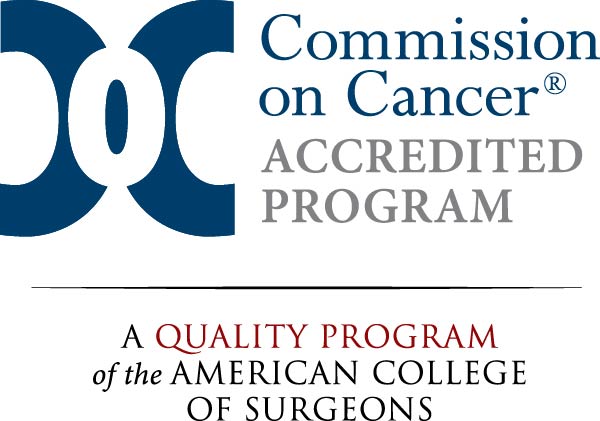 The care delivered to patients of the Blessing Cancer Center remains accredited by The Commission on Cancer (CoC), a quality program of the American College of Surgeons, as the result of a recent survey. To earn voluntary CoC accreditation, a cancer program must meet 34 CoC quality care standards, be evaluated every three years through a survey process, and maintain levels of excellence in the delivery of comprehensive patient-centered care.
The care delivered to patients of the Blessing Cancer Center remains accredited by The Commission on Cancer (CoC), a quality program of the American College of Surgeons, as the result of a recent survey. To earn voluntary CoC accreditation, a cancer program must meet 34 CoC quality care standards, be evaluated every three years through a survey process, and maintain levels of excellence in the delivery of comprehensive patient-centered care.
Blessing Hospital has held CoC accreditation since 1966.
“The CoC accreditation recognizes Blessing Cancer Center’s multidisciplinary approach to treating cancer as a complex group of diseases that requires consultation among surgeons, medical and radiation oncologists, diagnostic radiologists, pathologists, and other cancer specialists,” said board-certified radiation oncologist, Rob Johnson, MD, medical director of the Blessing Cancer Center. “This multidisciplinary partnership results in improved patient care.”
The CoC Accreditation Program provides the framework for the Blessing Cancer Center to continuously improve its quality of patient care through various cancer-related programs that focus on the full spectrum of cancer care including prevention, early diagnosis, cancer staging, optimal treatment, rehabilitation, life-long follow-up for recurrent disease, and end-of-life care.
“When patients receive care at a CoC facility, they also have access to information on clinical trials and new treatments, genetic counseling, and patient centered services including psycho-social support, a patient navigation process, and a survivorship care plan that documents the care each patient receives and seeks to improve cancer survivors’ quality of life,” stated Mohammed Memon, MD, board certified medical oncologist and medical director of the Blessing Cancer Center’s medical oncology services.
The Blessing Cancer Center maintains a cancer registry and contributes data to the National Cancer Data Base (NCDB), a joint program of the CoC and American Cancer Society. This nationwide oncology outcomes database is the largest clinical disease registry in the world.
“Data on all types of cancer are tracked and analyzed through the NCDB and used to explore trends in cancer care,” said Mark Khil, MD, board certified radiation oncologist and medical director of the Blessing Cancer Center’s radiation therapy services. “This data assists us in our continuous quality improvement efforts.”
CoC-accredited facilities diagnose and/or treat more than 70 percent of all newly diagnosed patients with cancer. The CoC provides the public with information on the resources, services, and cancer treatment experience for each CoC-accredited cancer program through the CoC Hospital Locator at https://www.facs.org/search/cancer-programs.
Established in 1922 by the American College of Surgeons, the CoC is a consortium of professional organizations dedicated to improving patient outcomes and quality of life for cancer patients through standard-setting, prevention, research, education, and the monitoring of comprehensive, quality care. Its membership includes Fellows of the American College of Surgeons. For more information, visit: www.facs.org/cancer
